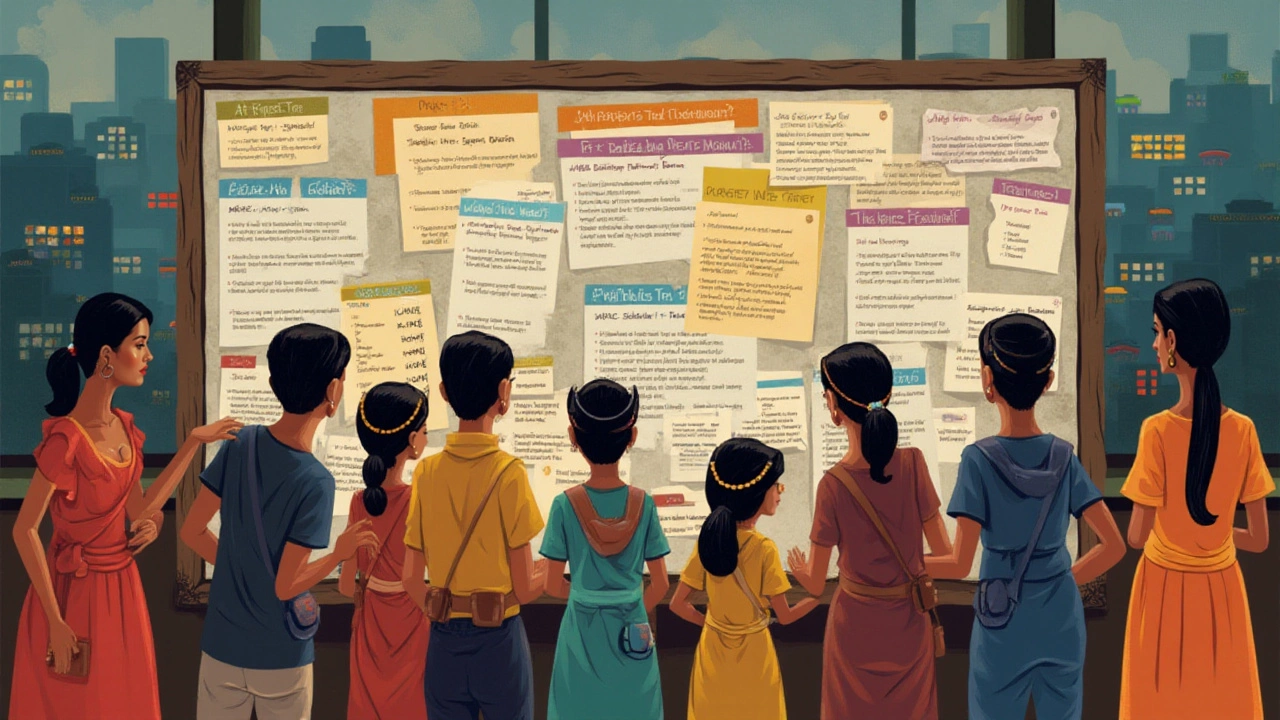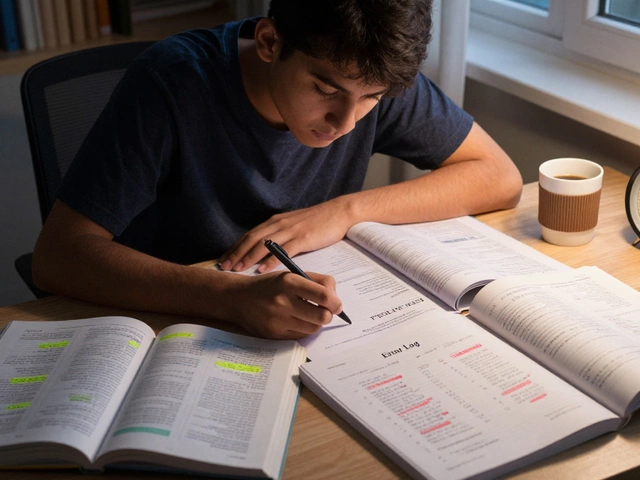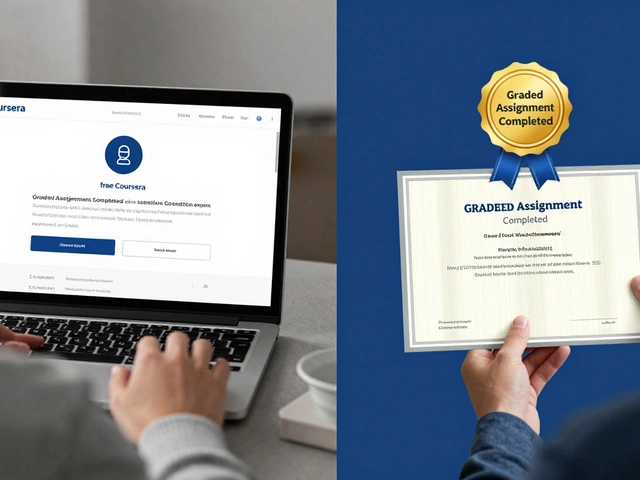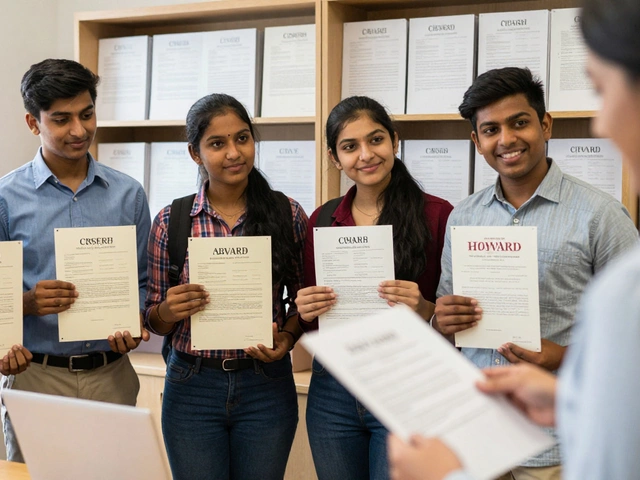For those standing on the brink of academics and professional life, competitive exams can feel like the last, great hurdle to leap over. Each year, scores of candidates face an array of tests, but certain exams in America have earned the distinction of being particularly challenging. These exams are not just tests of knowledge, but also of endurance and strategic preparation.
Understanding why these exams are considered tough requires looking at the scope of their content, the pressure of the timed environment, and the sheer complexity of the problems posed. The pressure is immense but fear not, as countless candidates have surmounted these challenges and emerged victorious.
Preparing effectively for these exams can help demystify the process. Equip yourself with the necessary tools and strategies to approach them with confidence, and assess the experience through the lenses of those who’ve been there before. Success might seem distant but, with the right plan, it is certainly within reach.
- Understanding the Stakes
- The Conflict of Complexity
- Balancing Breadth and Depth
- Insights from Those Who've Conquered
- Effective Preparation Strategies
- Navigating Failure and Resiliency
Understanding the Stakes
The very mention of America's toughest exams conjures images of stress-laden study sessions and ambitious minds striving for success. These exams often serve as gateways to esteemed professions or prestigious academic programs, and the stakes are undeniably high. Much more than mere tests of academic prowess, they are filters that help institutions and organizations select the finest candidates from a pool of talented individuals. To truly understand the gravity of these exams, we must consider not just the intellectual demands but the immense psychological pressure they exert on aspirants.
Imagine pouring months, sometimes even years, into preparation only to realize that a single mistake could cost one dearly. It's not just about clearing an exam; it's about securing a future. The LSAT, SAT, GRE, and MCAT are among the prominent names that loom large in the American educational landscape. Each of these tests is designed to measure specific skills—be it problem-solving, analytical writing, verbal reasoning, or critical thinking—ensuring that only the most competent candidates advance. As daunting as they might seem, mastering them opens doors to limitless opportunities.
The competitive exams landscape remains ceaselessly competitive, with aspirants frequently ready to go the extra mile. But what makes these exams distinctively challenging is the balance between their immense scope and precision. The SAT, for instance, isn't just a test of knowledge but also of time management, requiring students to swiftly transition from one type of question to another. This adds an additional layer of complexity, pushing candidates to not only know the material but to also excel under pressure.
Statistics reveal that the population of exam takers grows each year, a testament to the relentless drive for advancement in education and career. A 2019 study showed that approximately 2.2 million students took the SAT, emphasizing its significance in shaping academic futures. With such a staggering number of candidates, the competition gains an added intensity, urging individuals to stand out in their performance. As daunting as the figures may be, they also reflect the aspirations shared by thousands, all eager to carve their niche in their chosen arenas.
"Success is no accident. It is hard work, perseverance, learning, studying, sacrifice, and most of all, love of what you are doing or learning to do," said legendary athlete Pelé. His words resonate with competitive exam aspirants who understand that reaching the top requires more than intellect—it demands dedication and passion.
The Conflict of Complexity
The labyrinthine nature of America's toughest exams is notorious among candidates. These exams are structured to challenge not just rote memorization, but also the application of knowledge in intricate scenarios. Take, for instance, the Medical College Admission Test (MCAT), which is a battleground for aspiring doctors. It's not just about remembering biological systems; it's about applying that knowledge through a barrage of questions that test understanding of complex biochemical processes as they interact with psychological and social influences.
Alongside the MCAT, the California Bar Exam also demands intense preparation. Aspiring lawyers must navigate a legal maze, where analyzing and applying a myriad of laws and precedents to hypothetical situations becomes a routine task. This exam's complexity lies not just in the breadth of legal knowledge required, but also in understanding and articulating these concepts under timed pressure. The pass rates for this exam historically hover around 40-50%, embodying the challenging nature of this formidable gatekeeper.
Layered Complexity Across Disciplines
The Graduate Record Examination (GRE) poses another level of layered complexity, particularly for those entering specialized programs. Known for its tricky quantitative and verbal sections, the GRE forces candidates to transpose interdisciplinary knowledge into solving time-sensitive puzzles. The verbal section, for instance, is less about vocabulary and more about interpreting dense and complex passages, thus making the ability to distill information quickly a precious skill.Institutions understand that test scores are more than just numbers; they reflect a candidate's preparedness for tackling the grueling demands of their future fields. Competitive exams in America often serve as a microcosm of the conflicts professionals will face in real-life scenarios, demanding fast, yet thoughtful decisions.
"The value of an exam lies in not merely testing knowledge, but evaluating the ability to think critically and act decisively under pressure," noted David Coleman, President of the College Board, encapsulating the core principle behind these elaborate testing structures.
The conflict between complexity and preparation methods is real, and understanding this dynamic is key to mastering these tests. Examinees often find themselves balancing a tightrope, honing analytical skills while simultaneously managing stress. Those able to overlay strategic studying with practice simulations often find themselves better equipped to unravel these conflicting complexities, paving their way to success in their chosen disciplines.

Balancing Breadth and Depth
The concept of balancing breadth and depth in America's toughest exam is more than just a strategy—it’s a survival skill. Success in these notoriously rigorous tests, such as the MCAT for aspiring doctors or the CFA for financial analysts, demands an adept combination of broad knowledge and detailed understanding. Imagine being a sculptor, where general skills are needed to envision the complete statue, while precise detail handling is essential for carving intricate features. This balance is the cornerstone of cracking competitive exams.
Take, for instance, the MCAT, which encompasses subjects like biology, chemistry, physics, and critical analysis, requiring candidates to have a wide array of knowledge. Yet, it is equally imperative to delve into the particulars of each topic to ensure comprehensive preparation for the maze of questions. The key here is learning to approach topics holistically rather than in silos. When topics are interconnected, understanding them becomes less of memorization and more about forming a coherent picture of concepts, bolstering both knowledge and confidence.
Balancing breadth means casting a wide net to capture diverse knowledge areas. Candidates often devise a study plan that covers all foundational topics, acting as a map guiding through the exam’s landscape. Active learning techniques such as summarizing information, teaching concepts to peers, or using visual aids can enhance memory retention and understanding. Meanwhile, depth is about diving deep into pivotal areas, scrutinizing details, and analyzing them critically. This step involves question banks, online forums, and past paper analyses.
As Albert Einstein once said, "The only source of knowledge is experience." This profound statement is especially true for these demanding exams where experiential learning through practice and analysis is vital. Mock tests simulate exam scenarios, providing practical experience and highlighting areas needing more focus.
Moreover, the element of time management plays a crucial role. Juggling between covering new material and revising detailed subjects can be daunting. Little wonder then that successful examinees often stress the importance of creating a flexible yet structured timetable, allowing adequate time for both breadth and depth. Post-study reflections and reviewing errors can prevent repeating mistakes, refining strategies with each cycle.
Interestingly, research indicates that students who allocate study periods in cycles—interchanging between various subjects—often fare better than those engrossed in a single subject matter for long stretches. The interleaving approach not only maintains engagement but also sharpens problem-solving skills by forcing the brain to transition between topics, intensifying learning impact.
Ultimately, it is this delicate dance between breadth and depth that paves the path toward triumph in America’s most daunting exams. Embracing this balance not only equips candidates with versatile skills but also empowers them to tackle complex problems with ease and assurance, underscoring the resilience needed for academic and professional success.
Insights from Those Who've Conquered
The path to overcoming some of America's toughest exams is often lined with stories of perseverance, strategy, and resilience. Those who have successfully navigated these intellectual mazes often share a tapestry of experiences that can serve as a guiding light for others. A common refrain among these seasoned conquerors is the importance of understanding the structure of the exam deeply. Knowing not just the types of questions, but the weight and distribution across various sections, can dramatically alter one's preparation strategy.
Seasoned exam takers often emphasize timing as a crucial component. The ability to gauge how much time to allocate per question can make or break a performance. An often-overlooked strategy they advocate is the power of simulated practice under exact test conditions, down to the pencil shavings. This creates a familiar rhythm on the actual exam day and helps quell anxiety. Techniques such as the Pomodoro Technique, where study sessions are broken into 25-minute intervals with 5-minute breaks, are commonly praised for maintaining focus and energy during preparation.
Many also highlight the importance of exam preparation through peer discussion groups and online forums. These provide multi-perspective approaches to problems that might stump an individual working solo. “The value of discussing complex problems with fellow test-takers is immense,” says Lisa Murphy, a successful exam taker who now coaches others.
“You’re not just finding solutions; you’re learning how different minds approach the same problem.”Such interactions frequently lead to eureka moments and deepen one's conceptual clarity.
Another invaluable insight is the role of mental well-being in the preparation process. A strong mental game is deemed as crucial as the actual study hours committed. Techniques such as mindfulness meditation and regular physical exercise are often credited with enhancing concentration and reducing stress. These practices build mental toughness, fostering a can-do mindset that fuels successful outcomes.
Data from various preparatory institute feedback surveys indicate that candidates who incorporate diverse study resources, from textbooks to digital tools, generally score 15% higher than those who rely solely on traditional methods. The blend of modern tools with traditional learning ensures a comprehensive understanding, making the complex seem manageable. This approach transforms hurdles into stepping stones and epitomizes why diverse strategies are pivotal in competitive exams.
Ultimately, those who excel in these monumental exams remind us of a simple truth – it’s not just about working hard, but working smart. Identifying one’s learning style, aligning study habits to it, and leveraging the collective wisdom available through peers and mentors are essential elements. This multifaceted approach is what sets successful candidates apart in these difficult tests.

Effective Preparation Strategies
Preparing for America's toughest exam demands a strategic approach that combines smart study habits, effective time management, and resilience under pressure. One size does not fit all, as each exam brings its own unique set of challenges, so the first step is to familiarize yourself with the exam's format, structure, and content requirements. Understand whether the exam emphasizes multiple-choice questions, essays, case studies, or practical components, and tailor your preparation accordingly. Create a detailed study plan that is spread out over several months, allowing ample time to delve into each topic thoroughly. Break the material into manageable sections and set achievable milestones to track your progress. Adopting this systematic approach mitigates anxiety by turning an overwhelming workload into smaller, more digestible parts.
Moreover, utilize various resources available for free and purchase, including textbooks, online courses, and practice tests. Practice tests are particularly valuable as they provide insights into the exam pattern and help identify weak areas. They also simulate the rigors and pressures of the exam day, enabling you to develop effective test-taking strategies. Join study groups or discussion forums, either in person or online, where you can share knowledge and resources and help one another with challenging concepts. This collaborative environment can offer fresh perspectives and keeps you motivated throughout the grueling preparation period.
"Success usually comes to those who are too busy to be looking for it." – Henry David Thoreau
A critical part of preparing for these difficult tests is scheduling regular breaks and maintaining a healthy lifestyle. All-nighters might seem appealing or necessary, especially when the clock is ticking down, but research shows that adequate sleep and regular exercise significantly boost cognitive function and memory retention. Balance study sessions with physical activity, nutritious meals, and activities that help you relax, like meditation or hobbies. Remember, burnout is a real threat, and taking care of your mental and physical well-being is just as important as understanding the material. Engaging in these habits builds a strong foundation that supports sustained learning and optimal performance on the exam day.
Another vital element is seeking feedback and guidance from mentors, teachers, or coaches familiar with the specific exam. They can offer invaluable advice on how to tackle tricky sections, share insights about common pitfalls, and provide encouragement when confidence wanes. Consider hiring a tutor if budget allows, especially if you're struggling with specific subjects. Investing in this personal support and instruction can significantly boost your preparedness and confidence.
Lastly, it cannot be overstated how essential it is to develop the ability to remain calm and collected during the exam. Practicing mindfulness and stress management techniques can make a significant difference. Techniques such as deep breathing or visualization can help maintain composure when faced with challenging questions. As tempting as it may be to second-guess yourself, trust your preparation and your instincts. Remember that it's not uncommon to encounter things you've never seen in preparation, so maintaining a positive attitude and adaptability is key to navigating the uncertainties of the exam day with finesse.
Navigating Failure and Resiliency
The path to success in facing America's toughest exam is often paved with challenges and setbacks. Conquering difficult tests involves not just academic preparation but building a resilient mindset capable of handling failures. Many individuals who have achieved success in these exams attribute their triumphs to learning from setbacks. A resilient mindset acknowledges that failure is part of the learning process. This mindset is not just about bouncing back but also about understanding failure as a stepping stone. Without this understanding, candidates may find themselves overwhelmed by the pressure, which can derail their preparation and confidence. Planting firm roots in resilience can be a game-changer.
Consider Thomas Edison, who famously said, "I have not failed. I've just found 10,000 ways that won't work." This quote encapsulates the essence of resilience. The acknowledgment of each failed attempt as a lesson rather than a defeat is crucial. In facing competitive exams, the idea is similar. Sometimes, despite the best preparation, candidates may not achieve the desired score. With every attempt, candidates gather invaluable lessons about strategies that work and those that need adjustment. Accepting mistakes can inspire innovative solutions, helping candidates approach problems from multiple angles. This can be the differentiator between average and stellar performances.
Building resilience involves setting realistic goals and expectations, planning for contingencies, and approaching failures with the understanding that perseverance will lead to mastery. This stimulates a growth-oriented mindset. Applicants might benefit from segmenting their preparation, focusing intensively on weaker areas while maintaining a regimen that nurtures both physical and mental health. Incorporating activities that build mental resilience, such as meditation or sports, into their schedule can also provide balance. Maintaining perspective is vital; it's important for candidates to remind themselves that while the exam is significant, it is not the absolute measurement of their worth. A failed attempt is merely part of a larger journey toward their intellectual and professional aspirations.
Learning from Experience
It’s essential to tap into the collective wisdom of those who have tread this path successfully. Networking with peers or mentors who have navigated the trials of exam preparation can provide insights into effective methods for overcoming setbacks. Anecdotes from successful candidates reveal a universal truth: success is rarely, if ever, achieved without encountering obstacles. Forming study groups, engaging in peer discussions, and attending support seminars are effective ways to learn resiliency firsthand. Many institutions offer workshops focused on developing resilience and mental toughness specifically targeted to prepare individuals for high-pressure competitive exams.
"Success is not final, failure is not fatal: it is the courage to continue that counts." — Winston Churchill
Finally, harnessing technology and peer resources can provide fresh perspectives and recovery strategies. Whether it's using mobile apps to track progress or forums to exchange tips, technology offers numerous tools to aid preparation. Success in these exams is often about mindset as much as it is about knowledge. By embracing every failure as an opportunity to learn, candidates not only enhance their test-taking abilities but also strengthen their core skills necessary for lifelong learning and professional development. This approach encourages the cultivation of resilience that goes beyond academics and thrives in every facet of life.




